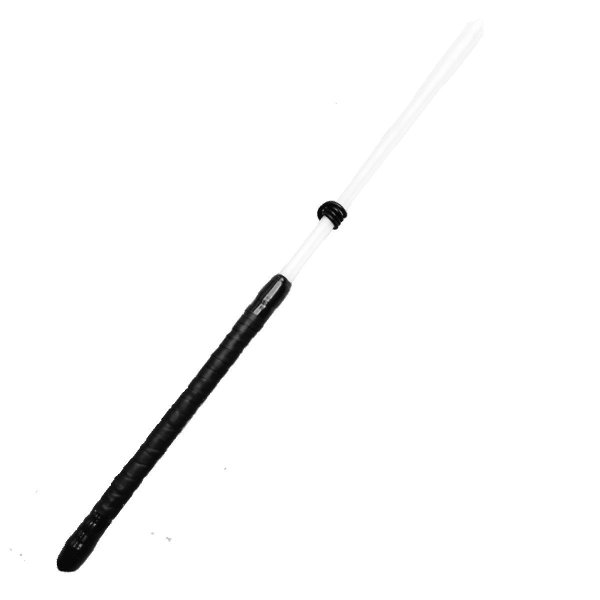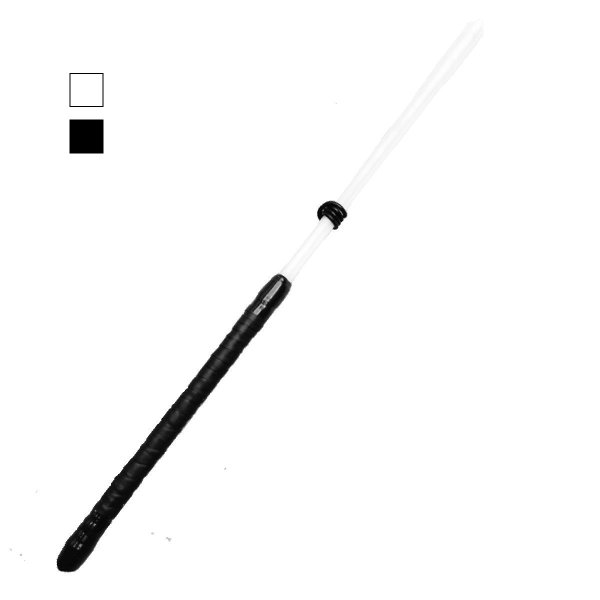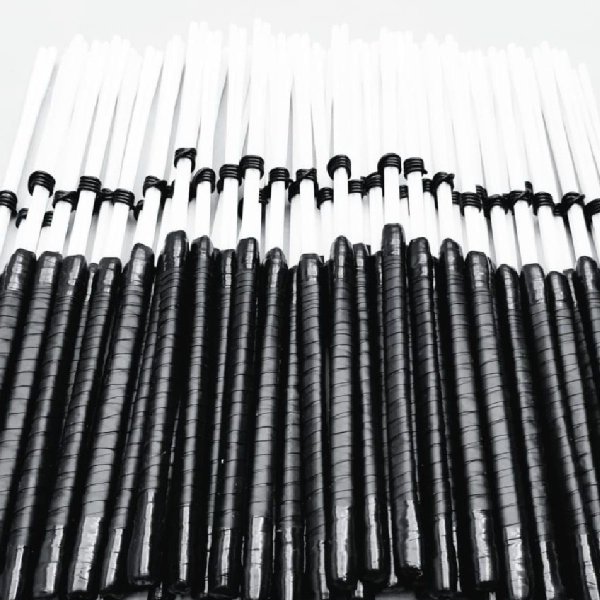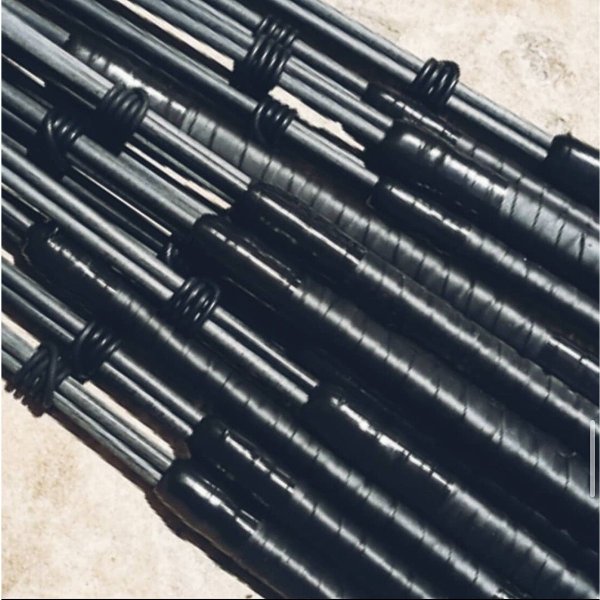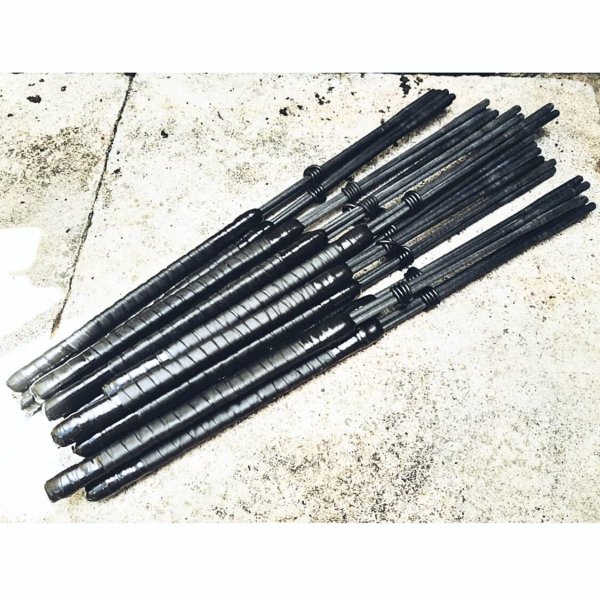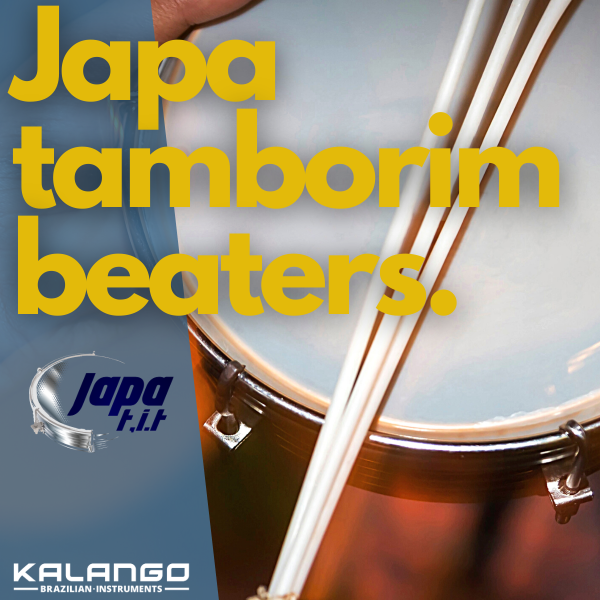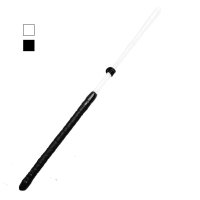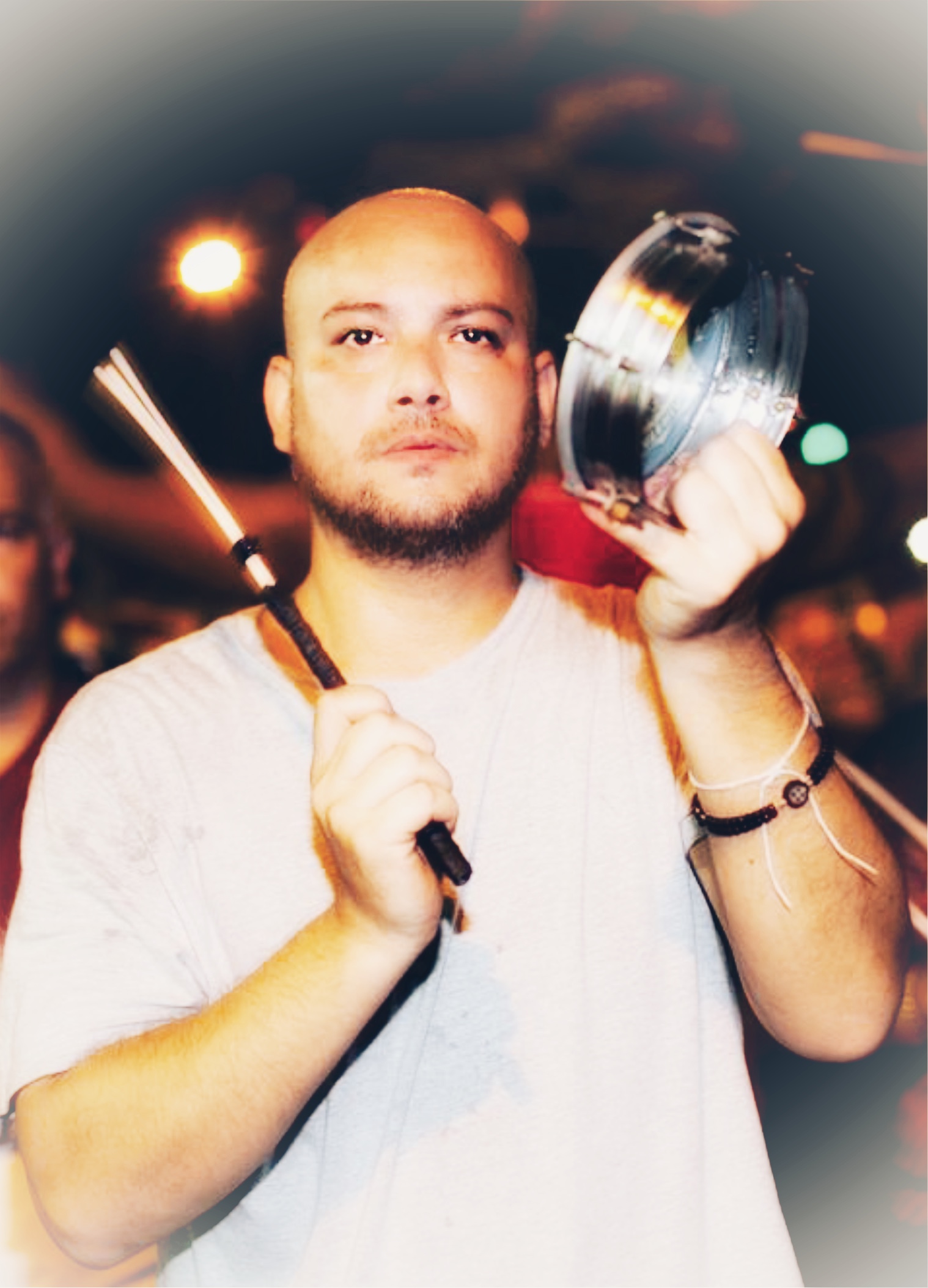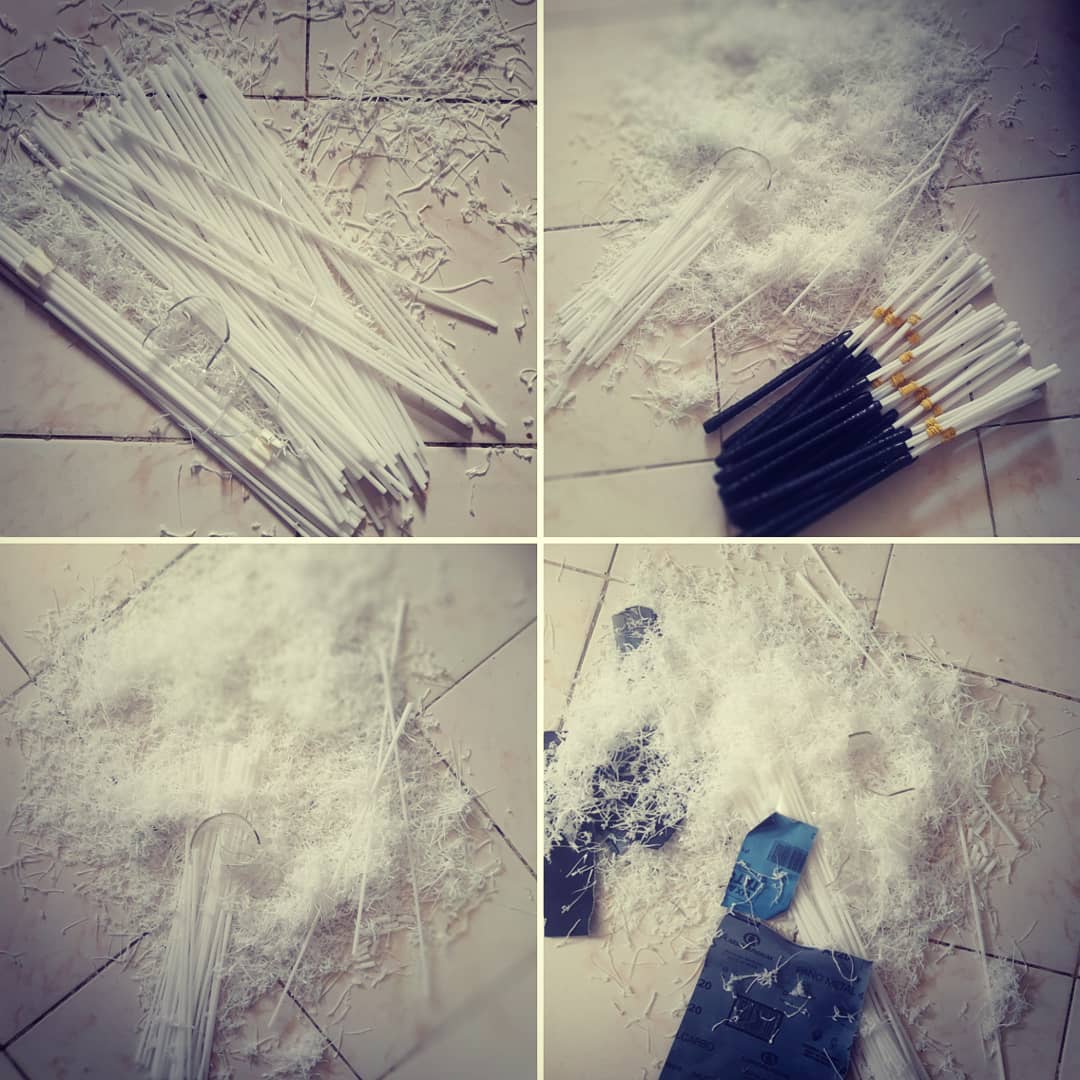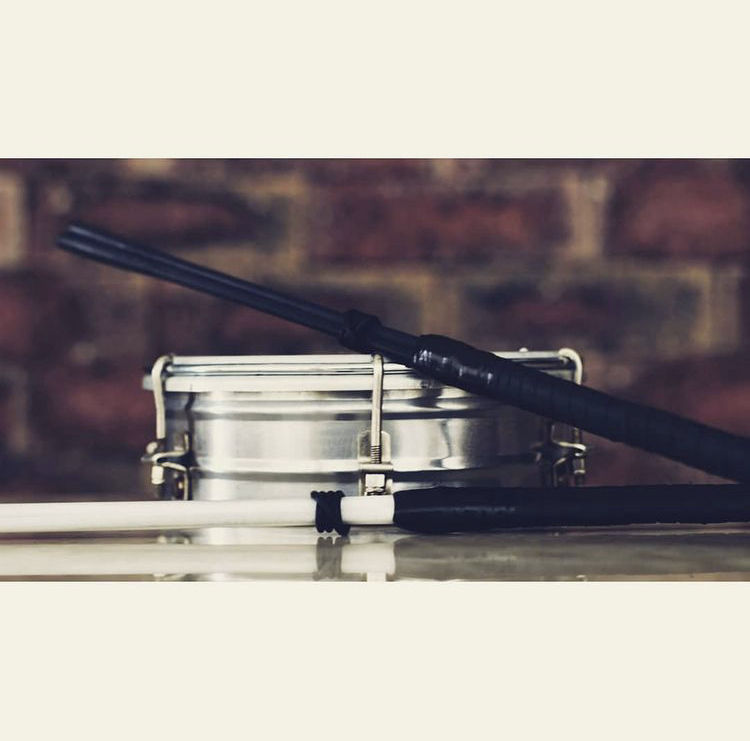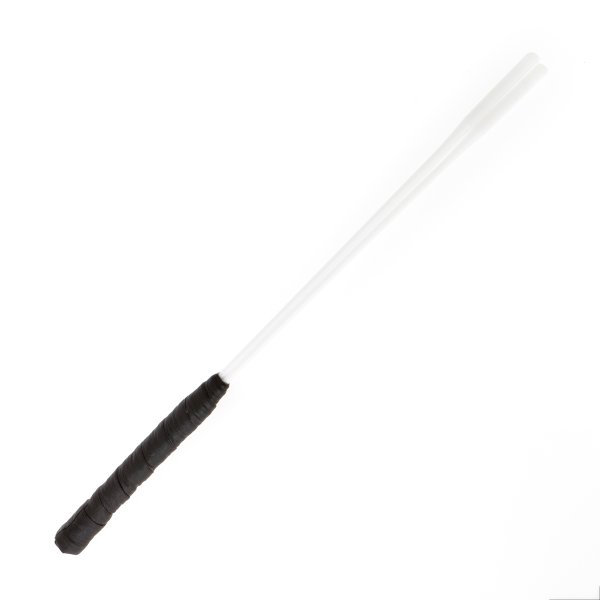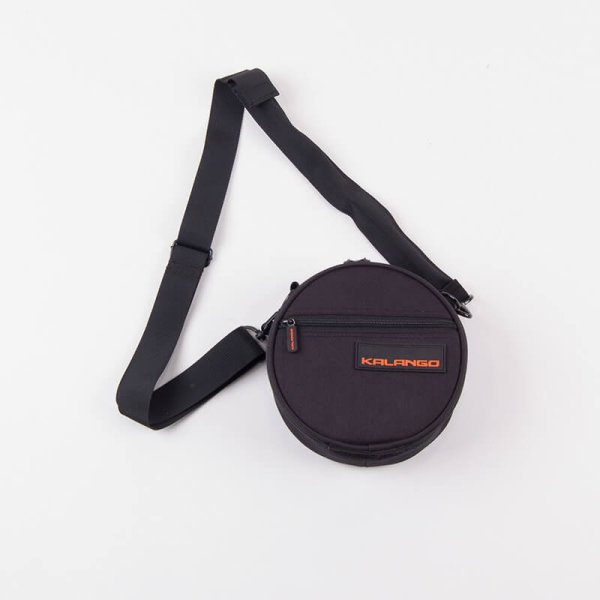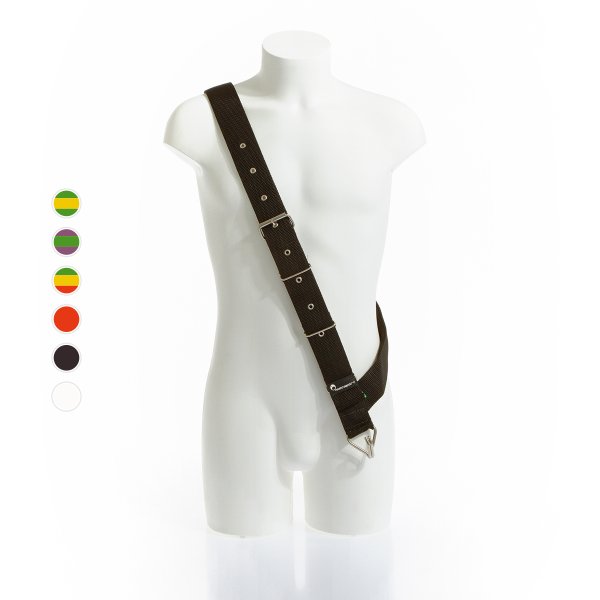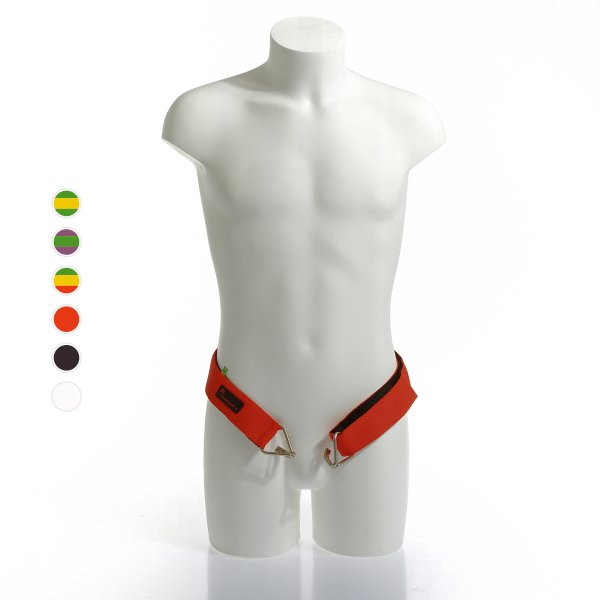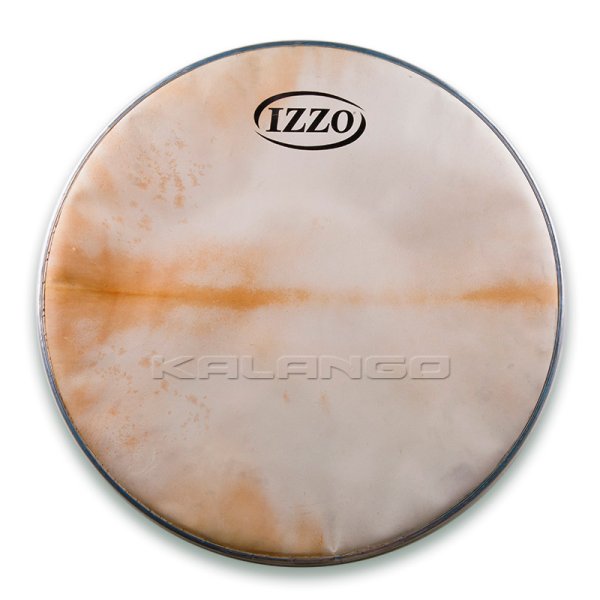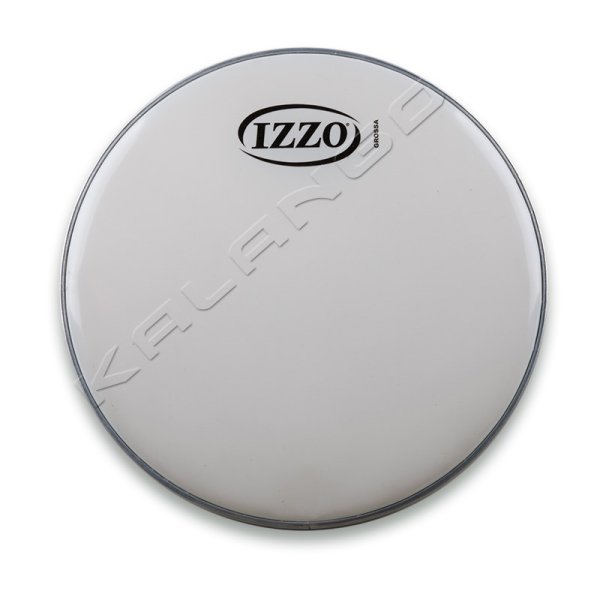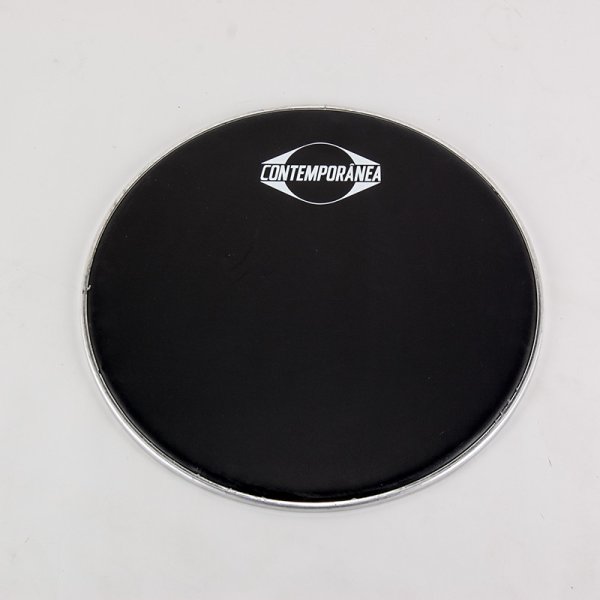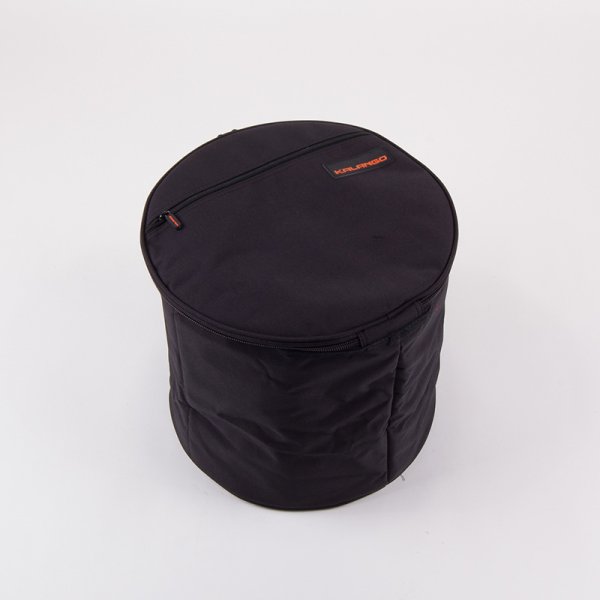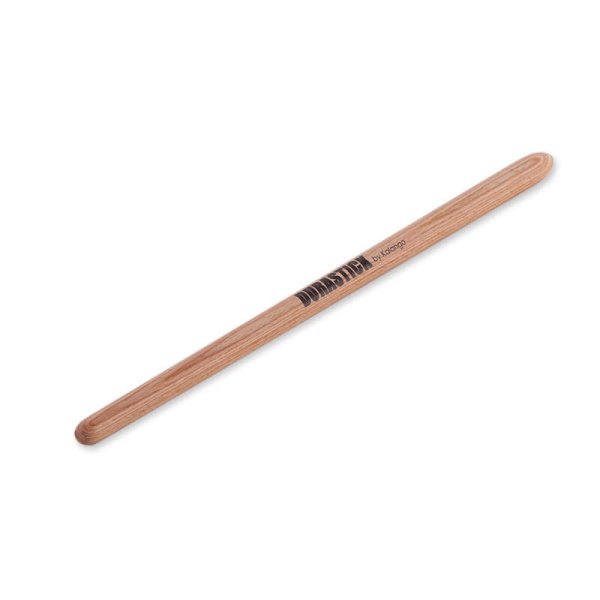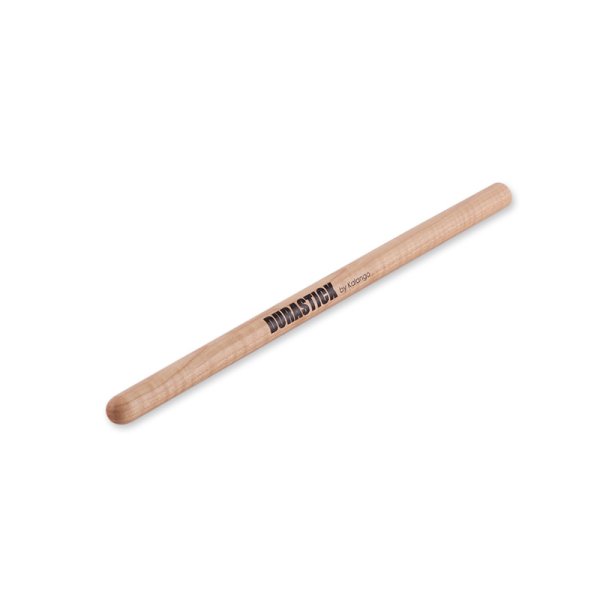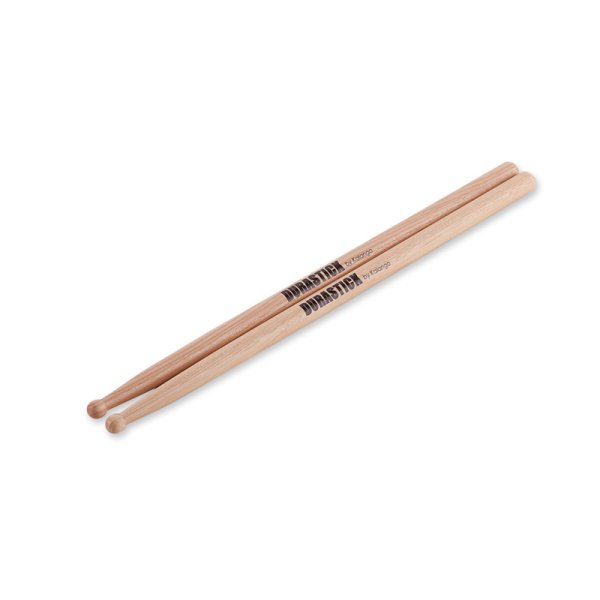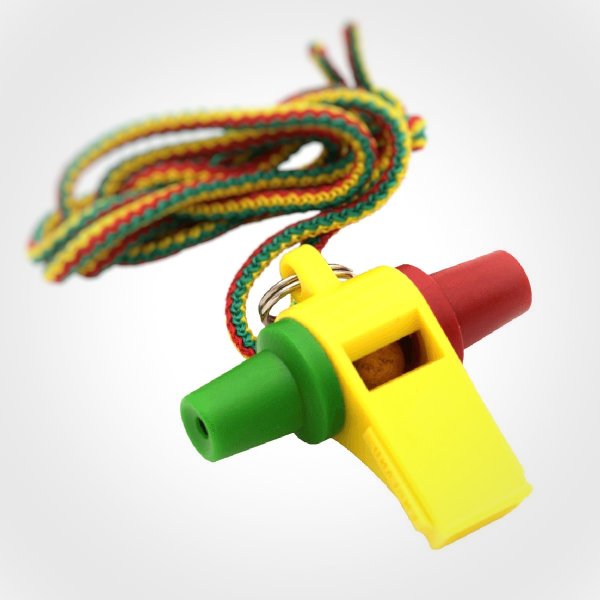Tamborim beater Japa 3 pins 39cm weiss - Japa
| item number: | A633020 |
| Farbe: | schwarz, weiß |
| Stäbchen: | 3 |
| shape of pins: | conical |
| handle elasticity: | stiff |
| flexibility: | low |
| handle material: | wrapped |
| total length: | 39 cm |
| weight (net): | 0,05 kg |
Handcrafted 3-strand tamborim beater by Luciano Japa, extra long - Pro stick for 3-1 technique
THE stick for absolute tamborim geeks! Authentic tamborim trend from Brazil for advanced tamborim players who want to pursue or develop a powerful playing style or also for tamborim freshmen who really want to go for it. The stick is 39cm long and therefore works best for the 'old' 3-1 technique. Due to the use of a high-density resin, the strands are very stiff and extremely tightly wrapped, so that an incredibly powerful, precise sound can be achieved with only 3 pins. Japa himself has an exceptionally powerful playing style, to which he has adapted his own creation in design and function. His many years in the professional Samba scene have helped to develop a tamborim beater that meets the demand not only to play loud and to the point, but also to be able to execute the 3-1 technique with endurance. A special feature of the stick is the disproportionately long handle, which is actually longer than the part of the strands you play with. The whole beater is designed that, even though you only have 3 strands, with a developed playing technique you'll be able to achieve incredible precision supported by the rigidity of the stick.
Particularly suitable for:
- 3-1 'old' turning technique
- advanced / pro tamborim players with solid technique and stamina
- beginners who value authentic gear and playing style
- precise, powerful playing
- people who prefer a clean, clear sound
Features:
- very long strands
- overlong handle
- very rigid wrapping
- high density of the stick material provides a powerful, loud sound
- plastic loop for fin tuning of flexibility
- conical tips
Not suitable for:
- 2-1 'new' turning technique: the sticks are too hard and do not bend into the turning movement
Customer reviews for "Tamborim beater Japa 3 pins 39cm"
"Japa"
Luciano Japa, or simply 'Japa' as everybody calls him, took his first steps in Samba in 1995 on his first instrument - the tamborim at Vai-Vai Samba School in São Paulo. In 2006, he began joining Samba schools in Rio de Janeiro on their parades. His first schools were Vila Isabel, Salgueiro and Portela while also visiting Tijuca, Viradouro and União da Ilha. In 2013 he became director of the tamborim section at Curicica School in Rio de Janeiro which had just risen to the high competing Samba leagues. In July 2013 he took over the board of tamborins at Salgueiro until recently in 2020. With Salgueiro, they won the award for the best ala and best design in 2016 and the best ala in 2017 and 2018. Japa has traveled to Europe, Argentina and all over Brazil to teach and give workshops. In 2020/2021, he became the coordenador de Bateria at Bloco Baqueta de Fortaleza which can best be translated at the manager of the bateria, training new ritmistas (samba-percussionists) as well as teaching individual and group classes.
In 2006 he started making tamborim beaters. All his tam sticks are entirely handcrafted. Today, his beaters are internationally known and very popular amongst the Samba pros in Argentina, Uruguay, in schools in São Paulo, Rio de Janeiro and in all Brazilian states.








